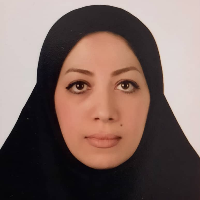Soft power is the main focus of strategic narrative in the power of diplomacy(Review of three narratives about Iran)
Today, soft power has become one of the pillars of foreign policy of governments. Increasing access to digital media has increased countries' capacity to harness soft power. In the field of digital media, Twitter has been welcomed by a wide range of politicians and has found a special place in the political equation; As many as 97% of the UN member states are members of this global network. In the meantime, following the narrations on Twitter or creating them in this environment is a platform that can change the function of the narrations; Therefore, the reaction of narrators on Twitter can be a criterion for the effectiveness of political narratives and its effect on soft power. The main question of the present study is what effect do political narratives have on the power of diplomacy? And how has Twitter contributed to the reflection of these narratives? The method used in this article is content analysis of three selected narratives based on maxqoda software on Twitter. Narrated by Nicki Haley, US Representative to the United Nations in 2017, Iranian Foreign Minister Javad Zarif in 2019, and Benjamin Netanyahu in 2018, then Prime Minister of Israel. It should be noted that the tweets are in English and the pages of Iranian politicians are also in English. The result of this study confirms that these narratives are based on the structure of generalization, environment and its results in the audience; It has had different effects on the soft power of diplomacy.
-
A phenomenological study of the impact of social networks on the feeling of social security (Case study: those born in the 70s)
Mahdi Hajiahmadi, *
Journal of Culture - Communication Studies, -
واکاوی نقش دیپلماسی رسانه ای در قدرت داخلی و روابط بین المللی کشورهای در حال توسعه
مهدی حاجی احمدی*،
فصلنامه سیاست خارجی، پاییز 1403 -
Investigation of Procedures Related to Compilation, Review, and Enactment of Approvals in Islamic City Councils; Case Study: “Nightlife” Approval in Tehran City
Zahra Nezhadbahrama, Seyyed Hossein Mirzadeh *
Journal of Architect, Urban Design & Urban Planning, -
Global Communication Networks (Twitter) to Strengthen International Social Capital
, Nazanin Malekikian *, Sarvenaz Torbati
Quarterly of Social Studies and Research in Iran,



